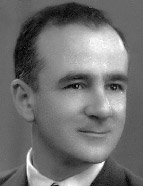

This extensive historical production was well received and allowed him to become a member of various institutions of the time: he was a member of the Academia das Ciências de Lisboa [Lisbon Academy of Sciences], the Academia Portuguesa da História [Portuguese Academy of History], and the Academia da Marinha [Navy Academy]. He was also honoured with several prizes and distinctions: the "João de Barros" history prize from the Agência Geral do Ultramar and literary prizes from the Lourenço Marques City Council and the city of Nampula, but also the decorations of Commander of the Military Order of Santiago da Espada in 1964 and the Gold Medal of the City of Lourenço Marques in 1972.
The transition between the 1960s and 1970s allowed Alexandre Lobato some teaching experience. He started out in his native city, Lourenço Marques, as an assistant professor from 1968 onwards. The subjects he taught reflected his vision of Portuguese history: "History of Portugal" and "History of the Portuguese Expansion in the World." After the 25 April Revolution, from 1974 to 1977, he taught "History of Colonial Mozambique" at the university that had been renamed as Eduardo Mondlane. At the same time, he was acting director of the Mozambique Historical Archives. In 1977 he decided to return to Portugal. In Lisbon he was a principal researcher at the Junta de Investigações Científicas do Ultramar [Overseas Scientific Research Board]. He also taught "History of the Portuguese Expansion in the World" at the Faculdade de Letras [Faculty of Arts and Humanities] of the University of Lisbon and this same subject at the Universidade Livre in 1980. He kept his scientific activities until he died in Lisbon in 1985. The career of Alexandre Lobato— a historian who only ever wrote about the Empire and was an incorruptible defender of its existence— could not resist the movement to "tidy up" history after the 25 April Revolution. The very place where he died reveals this fading history: the former capital of the now dead empire.
This work is financed by national funds through FCT - Foundation for Science and Technology, I.P, in the scope of the projects UIDB/04311/2020 and UIDP/04311/2020.
